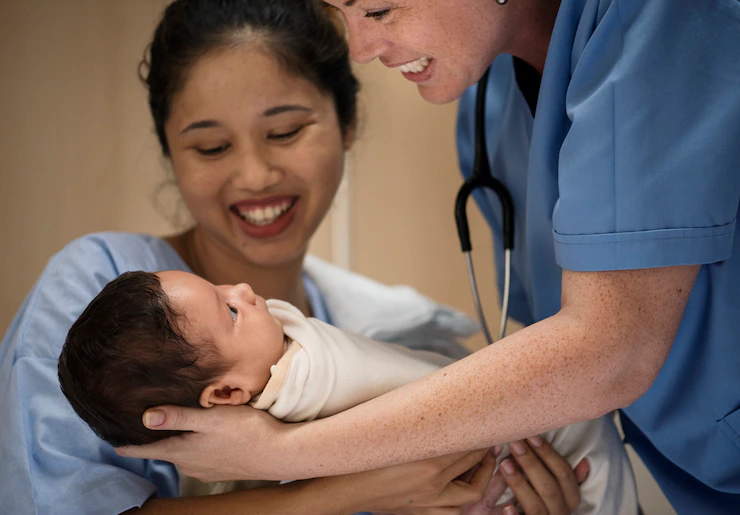Maternal health is a fundamental human right, regardless of a person’s nationality or refugee status. Refugee women face unique challenges and vulnerabilities that can hinder their access to adequate maternal health services. In South Africa, efforts are being made to ensure that refugee women receive the necessary care and support during pregnancy and childbirth. This article explores the importance of providing accessible maternal health services for refugee women in South Africa and highlights initiatives aimed at addressing the barriers they face.
Challenges Faced by Refugee Women
- Legal and Administrative Barriers: Refugee women often encounter legal and administrative obstacles that limit their access to healthcare services. Complicated registration processes, lack of documentation, and language barriers can make it challenging for them to navigate the healthcare system and access essential maternal health services.
- Cultural and Language Differences: Refugee women come from diverse cultural backgrounds and may have unique beliefs, practices, and language preferences. Language barriers and cultural differences can create communication challenges and hinder effective interaction with healthcare providers, leading to misunderstandings and inadequate care.
- Limited Financial Resources: Many refugee women in South Africa face economic constraints and struggle to afford healthcare services, including prenatal care, ultrasound scans, and necessary medications. Financial constraints often force them to prioritize other basic needs, resulting in delayed or inadequate maternal healthcare.
- Social Isolation and Lack of Social Support: Refugee women often face social isolation and lack strong support networks in their host country. The absence of familial and community support during pregnancy and childbirth can contribute to feelings of anxiety, stress, and a sense of vulnerability.
Ensuring Access to Maternal Health Services
- Sensitizing Healthcare Providers: Training healthcare providers to be culturally sensitive and knowledgeable about the unique needs and challenges of refugee women is crucial. This training should include understanding cultural practices, language interpretation services, and awareness of the rights of refugee women to access maternal health services.
- Language Support and Interpretation Services: Providing language interpretation services, multilingual staff, or employing trained interpreters can bridge the communication gap between healthcare providers and refugee women. Clear communication is essential to ensure that women understand their rights, receive accurate information, and actively participate in their own healthcare decisions.
- Community Outreach and Education: Conducting community outreach programs and educational initiatives tailored to the specific needs of refugee women can improve awareness and knowledge about maternal health. These initiatives can address cultural beliefs, debunk myths, and provide information on available services, rights, and entitlements.
- Collaboration with NGOs and Refugee Support Organizations: Collaborating with non-governmental organizations (NGOs) and refugee support organizations can enhance access to maternal health services. These organizations have experience working with refugee communities and can provide valuable support, advocacy, and resources to ensure that refugee women receive the care they need.
- Financial Assistance and Insurance Coverage: Providing financial assistance programs and insurance coverage specifically tailored to meet the needs of refugee women can alleviate the financial burden associated with maternal healthcare services. This can include subsidies for prenatal care, childbirth expenses, and access to essential medications.
- Refugee-friendly Maternity Facilities: Creating welcoming and inclusive maternity facilities that respect and accommodate the cultural practices, beliefs, and privacy of refugee women can enhance their comfort and willingness to seek care. Facilities can consider providing female healthcare providers, culturally appropriate food options, and prayer spaces, among other considerations.
Conclusion
Ensuring access to maternal health services for refugee women in South Africa is essential to safeguard their well-being and that of their babies. By addressing legal and administrative barriers, providing language support, conducting community outreach, collaborating with NGOs, and offering financial assistance, South Africa can create a more inclusive healthcare system that meets the unique needs of refugee women. By working together, healthcare providers, policymakers, and community stakeholders can empower refugee women to access the care they deserve, promoting their health and fostering a society that values the well-being of all women, regardless of their refugee status.










